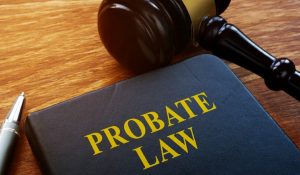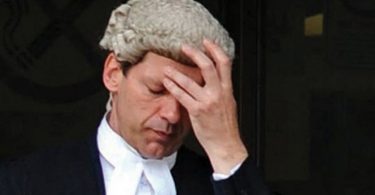Table of Contents
Hidden assets in probate cases include anything obscured from the prying eyes of estate administrators. This may include investments, properties, bank accounts, and various valuable possessions that the decedent held.
These concealed treasures matter greatly in probate cases because they can significantly change estate distribution among heirs and beneficiaries. A new discovery would mean more to the beneficiaries and a new dimension on debts and inheritance taxes.
Therefore, it’s imperative to understand the intricacies of hidden assets and their implication if you want to navigate probate cases effectively.
This guide breaks down the common types of concealed benefits and how to trace them successfully.
Key Takeaways
- The concealed treasures may include real estate, offshore accounts, cash, cryptocurrency, and business stocks.
- A successful search for hidden assets involves navigating complex landscapes guided by privacy, confidentiality rights, and local laws.
- All these intricacies, pitfalls, and challenges necessitate the involvement of heir researchers and attorneys to enhance accuracy and efficiency.
What Are the Common Types of Hidden Assets?

Hidden treasures
Hidden assets in probate cases can vary significantly, but the most likely to appear include:
- Cash and Bank Accounts: Money stashed in secret locations such as drawers or crypto/ bank accounts opened in secret to obscure transactions.
- Property: The decedent may have real estate and properties in different places and probably use trusts or third parties. Similarly, people use shell companies to shield their property ownership and rent or use them for business to make them less conspicuous.
- Business Interests and Investments: Complex company structures could make it hard for estate administrators to easily identify bonds, securities, or stocks, especially if the decedent did it intentionally.
- Collectibles: Art, jewelry, and other valuable collectibles may only be found if you locate the storage units, deposited boxes, or the individual trusted with them.
- Offshore Accounts: Moving funds across international borders is a common tactic to evade detection and taxes.
- Digital Assets: Online assets like digital wallets, online businesses, and domain names may only be apparent if you conduct an in-depth forensic investigation.
Indicators Of Hidden Assets in Probate Cases

Looking for red flags
Any red flag in financial records is an indicator that you may have a hidden asset.
Financial records are a significant culprit when betraying malpractices in estate reporting. So, unexplained large deposits and withdraws, transaction gaps, or indefinite logical explanations are reasons to fret.
The decedent’s lifestyle can also indicate discrepancies in their estate reporting. If they frequently traveled, had luxury cars not registered in their name, or lived a life that exceeded their reported income and wealth, it may suggest hidden assets.
Indicators of hidden assets vary in each case and you need a keen eye and understanding of financial and business nuances to recognize them.
How To Locate Assets in Probate Cases

Gather Relevant Information
Locating assets involves a multifaceted approach that draws upon various methodologies and sources.
Here is a sneak peek into the process of uncovering concealed wealth and inheritance.
- Asset Investigation: This process involves a systematic examination of the decedent’s assets, accounts, documents, and records. The investigator may also interview friends, associates, family members, and employees for clues.
- Forensic Accounting: Forensic accountants analyze financial data that can reveal hidden liabilities, assets, or income. They are better placed to spot anomalies and patterns that could lead to a concealed treasure.
- Physical Searches: The decedent’s home, offices, or other premises may be searched for devices, paperwork, deposit boxes, or other places where valuables may be concealed.
- Financial Records and Institutions: Tax returns, credit reports, financial records, and other pertinent documents can be insightful about financial history. Similarly, investigators can contact relevant financial institutions, agencies, organizations, and businesses that the decedent dealt with for clues on assets.
- Professional Assistance: You will need a private investigator, a forensic accountant, and an heir hunter to detect hidden assets. Their understanding of the nuances helps them easily evade the pitfalls and prove their case with evidence and accuracy.
For example, Record Click’s reports can be used in court as they’re recognized as official documents. Plus, if needed, we’re available to appear in court for testimonies.
Our team of 45+ experts include a former CIA agent, researchers in all states, and researchers in all parts of Europe.
READ MORE: Save time & money by hiring RecordClick for your search
What Are the Legal Implications When Finding Hidden Assets?
The law is well-pronounced when finding hidden assets in probate cases. Some regulations provide a timeframe when an estate must be filed, as well as the conduct of the executors and administrators.
Therefore, your jurisdiction determines the legal implications your search will likely encounter. For example, in New York, executors or administrators have six months to file an inventory of assets with a possible extension, while Texas sets the limit at 90 days.
What is the role of Court-Appointed Investigators?
In cases of dispute or suspicion, the court may appoint an investigator to check into records. The chosen investigator must remain transparent and report their findings and recommendations to the court.
They are legally obligated to report the estate in a probate court and legally gather information to back their submission. Any failure by these professionals can attract a legal consequence, including personal liability and removal from the role.
How Professionals Help Find Hidden Assets in Probate Cases

Consult a professional
Working out all the obstacles the decedent may have intentionally applied in hiding their assets is no small feat and consulting professional goes without saying.
Professional genealogists in heir search companies are skilled in locating missing estates and heirs. They have the necessary resources and network to unlock any mystery surrounding your probate case.
Attorneys are also crucial when you want practical legal guidance and court representation. They can collaborate with the genealogists to ensure that your case is beyond a reasonable doubt.
If the court has appointed an estate administrator, you should work closely with them to ensure that they proceed according to the legal framework and guidance provided by the probate court. :
Bottom Line
Involving professionals in the early stages of your probate cases can stop the concealments before they worsen and make it easy to win your case. Most importantly, the intricacies and challenges in uncovering hidden assets underscore the need for experience and expertise.
To facilitate these efforts, Record Click offers you a special discount to assist in your quest for a just and fair asset distribution. See our discounted services and prices here and realize how seamless uncovering concealed inheritance can be.








